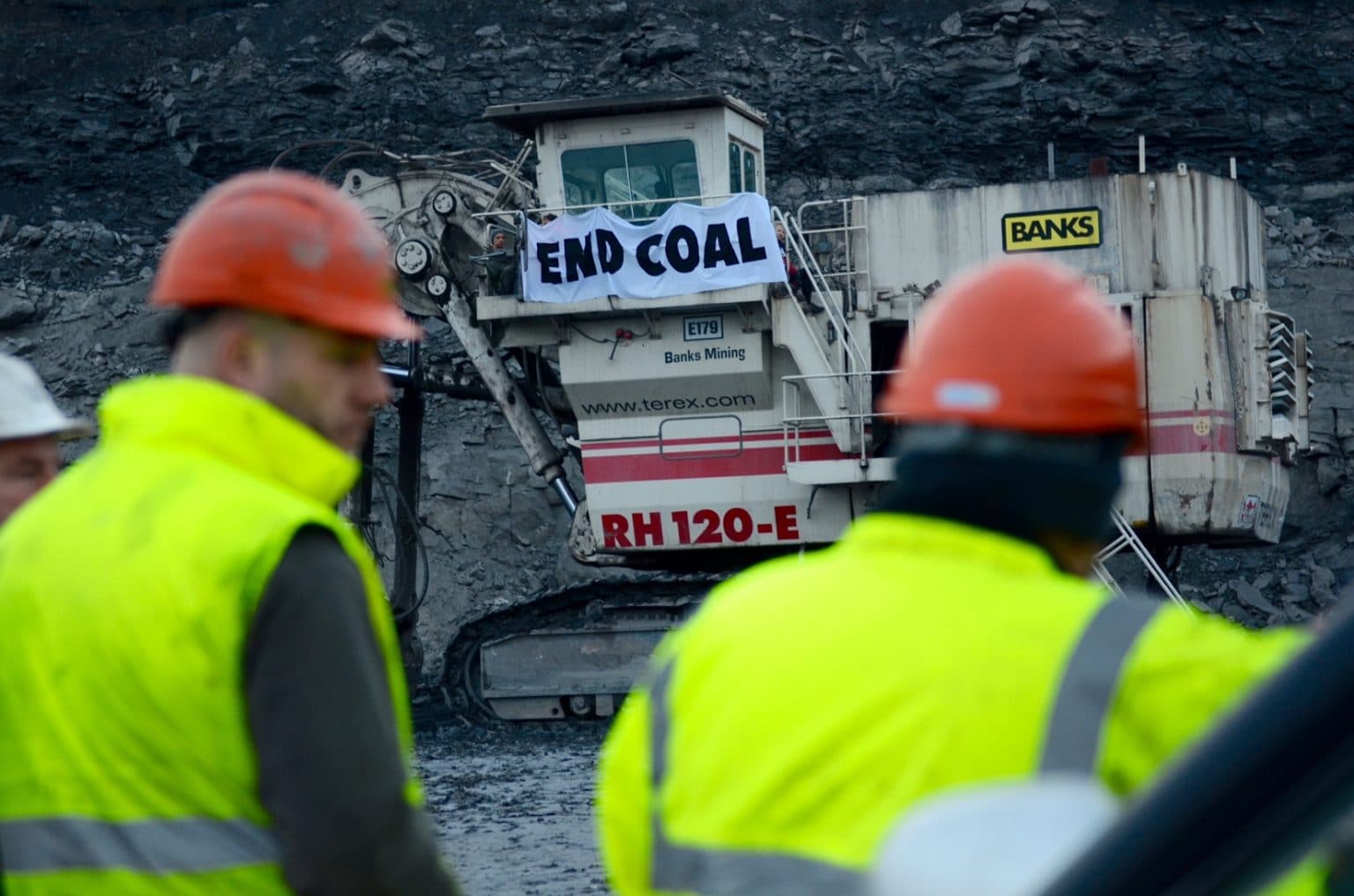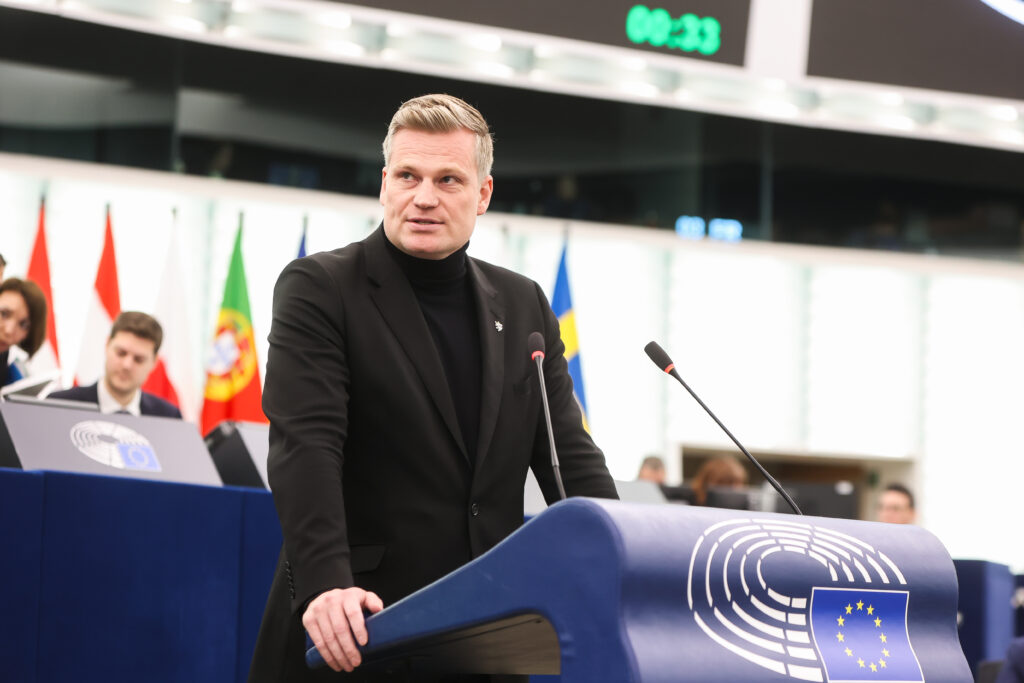Adam Ramsay, co-editor of openDemocracy, asks: Is the Times allowing a wealthy coal–baron to push them into misleading their readers about dodgy climate change denying science?
The Times is perhaps Britain’s most famous newspaper. Its readers take what is written in it seriously. And those readers include amongst them many of the most powerful people in the United Kingdom and the world.
And so when it gets a significant fact wrong, that’s not something to dismiss. When it gets a fact right, but then ‘corrects’ it so that it becomes wrong, that’s perhaps even more serious – and strange.
I previously wrote about how the paper was caught up in what I then called a “peer–review scam” run by Britain’s biggest climate change denying think–tank The Global Warming Policy Foundation (GWPF), and involving Times columnist, brother–in–law of former Conservative Environment Secretary Owen Paterson, and disgraced former Northern Rock chair Viscount Matthew Ridley, who owns an 8,500 acre estate which has England’s largest open–cast coal mine on it.
Ridley had claimed in his Times column that a report which he argued showed “the good news” relating to carbon dioxide emissions was “thoroughly peer–reviewed”. A sting by Greenpeace investigators around a climate change denying academic in the USA revealed that research the GWFP think tank claims is “peer–reviewed”, including this report, seems in fact to have had little more scrutiny than being sent round a mailing list of friends and allies.
I was also told that Ridley intervened at the Times to complain about a news story written about the same report. Under the headline “Global warming is good for us, scientist claims”, the original article, published on page 2 on the 16th of October, said that the research was not peer–reviewed. After Ridley spoke to the Times editor, a correction was issued saying only that they ought only to have said that it was not been published in a peer–reviewed journal, implying it was peer–reviewed.
After both openDemocracy and DesmogUK ran stories in December about Matt Ridley’s false claims in the Times, the paper has failed to correct Ridley’s claim, failed to re–edit its correction on the news story, and failed to get back to my questions about this matter, despite saying they would “look into it”. However both Ridely and the Global Warming Policy Foundation have responded.
Ridely tweeted:
I was entirely accurate in describing Goklany’s @thegwpfcom paper as peer-reviewed: see here https://t.co/jVM0C3VccM
— Matt Ridley (@mattwridley) December 11, 2015
The tweet links to a page on the GWPF website entitled “How GWPF reports are peer–reviewed”. They say “Greenpeace and some journalists are alleging that the Global Warming Policy Foundation does not subject reports to peer review, and that our Academic Advisory Council was made available for the purpose of reviewing a proposed study for a fossil fuel company. These claims are entirely false.”
So, is Ridley right to stand his ground? Were Desmog UK and I wrong to criticise him and the paper he writes for? It was time to call in a higher authority.
I rang the charity Sense About Science. They put me in touch with Adam Levy, who is a reporter at the pre–eminent scientific journal Nature, and has a doctorate (DPhil) in Atmospheric Physics from the University of Oxford. My questions to him are in bold, his answers below.
Do you believe it is accurate for Matt Ridley to claim that this paper is peer–reviewed?
No. The review process received by this paper is not what would generally be described as peer–review. I have not encountered other instances of similar publications being cited as peer–reviewed in either academia, or science journalism.
If not, why not? What’s the difference between a think–tank choosing some people it sees as qualified to give comments on a paper, and an academic journal doing the same?
Peer–review is a complex, subtle process, but at its core is independent, expert review. Editors at scientific journals take great pains to seek out reviewers whose knowledge is closely linked to the topic of the research, and who will not have conflicts of interest.
This process operates differently if it is managed by an organisation such as a think–tank. Think–tanks generally perform advocacy and so – by definition – have specific interests that they wish to promote. These special interests can undermine an editorial process striving for impartiality, and this problem is exacerbated if members of the organisation provide these reviews.
Worryingly, this is indeed how the GWPF’s [the Global Warming Policy Foundation] process appears to operate, with members of its Academic Advisory Council providing at least some of the reviews of its own product. This council is inherently partial and – as one Nature editor commented to me – it is also unclear what expertise many of its members can offer on the topics covered by this paper (or indeed the topic of global warming in general).
In fact, both academic and news editors at Nature expressed concerns to me about this review process when asked, and confirmed that they would not consider the paper to be peer–reviewed. The lack of transparency about the review process beyond a blog post was also cited as a cause for concern. For comparison, Nature details its peer–review policy here.
None of this should imply that publications from think–tanks are without value, or that peer–review can only be orchestrated by science journals. Indeed, the mammoth IPCC climate change reports reference many publications from the so–called ‘grey literature’. But referring to such publications as peer–reviewed devalues the term, and does a disservice to the scientific peer–review process. Most worryingly, it risks opening the door for any paper that has had any external input to use this label, regardless of the impartiality of this input.
Do you believe that the Times ought to issue a correction, stating that it is not peer reviewed, in the conventional meaning of the term?
This paper has not received what scientists would consider peer–review. Describing it as peer–reviewed without substantial caveats is misleading, and should be corrected by the Times.
Do you have any other comments on the matter?
Would Matt Ridley and the GWPF have been so keen to promote a similarly reviewed publication from an environmental advocacy group as ‘peer–reviewed’? It seems unlikely.
So, to summarise, the Times published a misleading claim by a coal–baron (Matt Ridley) which props up the idea that his wares aren’t damaging, despite all the evidence to the contrary. They corrected an originally accurate article, so that it corroborates this misleading claim. It seems they did so after the direct intervention of said coal baron. And they have now failed to correct their error, despite it being pointed out to them.
Here’s my question: why is the Times willing to twice mislead its readers, seemingly at the demand of a disgraced former bank chairman who benefits financially from an industry desperate to hide the truth?
A version of this post was originally published on openDemocracy.
Photo: Brendan Montague
Subscribe to our newsletter
Stay up to date with DeSmog news and alerts







